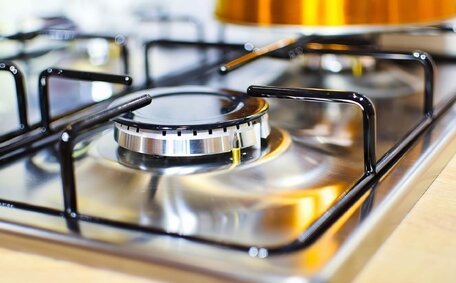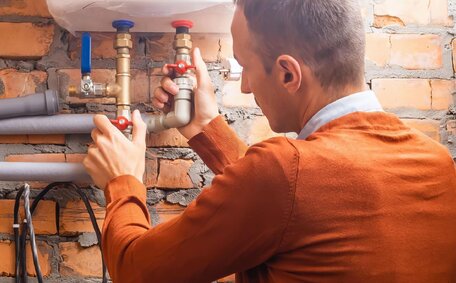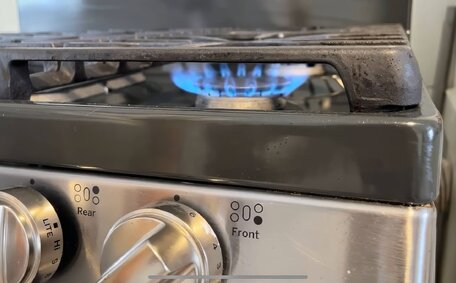Introduction to Pipe Relining
Pipe relining is a trenchless method for repairing damaged pipes in your home or on your property. It involves inserting a resin-infused liner into existing pipes to repair cracks, breaks, blockages, or intruding tree roots. The liner bonds to the inside walls of the pipe, creating a ‘pipe within a pipe’.
The benefits of pipe relining compared to completely replacing pipes include being less invasive, faster, often cheaper, and producing a very durable repair that can last 50+ years. By avoiding the need to dig up and replace pipes, it causes minimal disruption to your home or property.
If you have noticed signs of pipe damage like leaking, reduced water pressure, or blocked drains, pipe relining may be the optimal solution. It’s an effective way to restore your plumbing system to optimal function, with minimal hassle or expense.
Common Pipe Materials Used
There are several materials commonly used for pipe relining, each with their own advantages and ideal applications:
PVC (Polyvinyl Chloride) - One of the most popular pipe materials due to its durability, corrosion resistance, ease of installation and cost-effectiveness. Best suited for cold water applications.
PE (Polyethylene) - Known for flexibility, abrasion resistance and chemical resistance. Often used for gas supply lines and irrigation systems.
PP (Polypropylene) - Highly resistant to acids, bases and chemical solvents. Used for hot and cold potable water applications.
ABS (Acrylonitrile Butadiene Styrene) - Strong and durable plastic piping suitable for drain, waste and vent systems.
Cast Iron - Used in older homes, provides excellent pressure capacity but prone to corrosion and cracking over time.
Copper - Corrosion resistant and ideal for potable water but expensive and difficult to work with.
Steel - Durable but susceptible to corrosion from water exposure over time.
The epoxy resin used as a liner material is highly durable, non-toxic and safe for potable water delivery. Overall, modern pipe relining provides a wide range of options to find the optimal material for restoring your pipes.
Factors that Determine Pipe Quality
There are several key factors that influence the quality and durability of materials used in pipe relining:
Strength and Toughness - Pipe materials need to be strong enough to withstand internal water pressure, external earth loads, weather effects, and potential impacts. Ductile materials that resist cracking are best.
Corrosion Resistance - Pipes must withstand corrosion from both internal exposure to water and external soil conditions over decades of service. Non-reactive materials like plastic and epoxy resin perform well.
Temperature Rating - Relined pipes must maintain their strength and integrity in both hot and cold service conditions. Specialty materials may be required for steam lines or heating pipes.
Chemical Resistance - Pipe materials should not degrade or leach chemicals when exposed to common household and industrial chemicals found in waste water.
Abrasion Resistance - Over time, materials like sand and grit in waste water can abrade away pipes from the inside. Wear-resistant materials are ideal.
Hydraulic Smoothness - The inner pipe surface should be as smooth as possible to maximise flow and resist build-up of deposits and blockages.
Considering these factors carefully will ensure you select the highest quality and most durable materials for relining your pipes. With proper material selection, pipe relining can restore your plumbing system to like-new condition with a lifespan of 50+ years.
How to Identify Your Pipe Material
There are a few methods you can use to identify the material of the pipes in your home or building:
Visual Inspection: If you have access to view the pipes directly, you may be able to identify the material just by sight. Copper pipes have an orange-brown colour, while plastic pipes like PVC are white, grey or black. Cast iron pipes are dark grey with weld marks around the joints.
Magnet Test: Run a magnet over the surface of the pipe. If the magnet sticks, the pipe is likely made of steel. If the magnet does not stick, it may be copper, plastic or other non-ferrous material.
Scratch Test: Carefully scratch the surface of the pipe with a knife or other sharp object. Plastic pipes will cut easily but not show any colour on the cut surface. Metal pipes will be more difficult to scratch and show a silver or copper colour when cut.
Plumbing Records: Check any documentation you have about past plumbing repairs or inspections. This may indicate the existing pipe types throughout the house.
Plumbing Inspector: Hire a professional plumbing inspector to examine your pipes and identify the materials. They have the expertise and tools to definitively determine your pipe types.
Knowing your pipe composition allows you to make informed decisions about repair methods like pipe relining. Contact a professional plumber if you need assistance determining your pipe materials or repair options.
Questions to Ask Your Plumber
When considering pipe relining, be sure to ask your plumber the following questions:
- What materials will you use for the liner? Ensure they are non-toxic, durable, and suitable for contact with potable water.
- How long have you been performing pipe relining repairs? Look for extensive experience with the process.
- Will the liner bond effectively to my existing pipe material? They should ensure compatibility.
- What is the warranty or guarantee on your pipe relining work? Aim for at least 10 years of coverage.
- Do you have before and after photos of past relining projects I can see? This demonstrates real-world results.
- What permits or notices are required? They should handle all notifications.
- How long will the project take and what is the step-by-step process? Understanding the timeline prevents surprises.
- How will you ensure no leaks after the relining is complete? Accept only rigorous post-repair testing.
Asking the right questions upfront ensures you choose the best plumber for a successful, long-lasting pipe relining project that restores your plumbing to function reliably for decades.
Pros and Cons of Different Materials
There are positives and drawbacks to the various materials used for pipe relining:
PVC:
- Pros: Inexpensive, easy to install, durable, corrosion resistant.
- Cons: Can be damaged by UV light, prone to accumulation of scale deposits.
Polyethylene (PE):
- Pros: Flexible, abrasion resistant, handles temperature fluctuations.
- Cons: Subject to damage from harsh industrial chemicals.
Polypropylene (PP):
- Pros: Resistant to acids, bases and chemical solvents, good insulator.
- Cons: Can be brittle at lower temperatures, difficult to work with.
Epoxy:
- Pros: Extremely durable, bonds well to different pipe materials, resists corrosion.
- Cons: Difficult to repair once fully cured, requires skill to install properly.
Overall, modern epoxy resins often provide the best all-around performance for pipe relining applications. But work with your plumber to select the optimal material for your particular pipes and needs.
Ensure Your Plumber Follows Standards
When undergoing any plumbing repair project, it is essential to hire a licenced, reputable plumber who follows established industry standards. This helps ensure a successful, durable pipe relining outcome.
Ideally, your plumber should follow the stringent quality guidelines outlined by Water Services Association of Australia (WSAA). This includes proper training, use of approved materials and methods, rigorous testing and inspection, and compliance with all relevant codes and regulations.
Specifically for pipe relining, you want your plumber to follow these key standards:
- Thoroughly inspect and clean pipes before inserting liner
- Use only non-toxic, drinking water-safe epoxy resins
- Custom-fit and seal liner to your pipe dimensions
- Monitor temperature and curing times precisely
- Conduct pressure tests after installation to check for leaks
- Repair any defects immediately and re-test as needed
- Provide documentation of all materials, permits, and testing
Reputable plumbers like Mascot Plumbing are fully licenced, experienced, and dedicated to meeting industry best practises. We keep up to date on the latest pipe relining methods and materials to deliver optimal results.
I highly recommend contacting qualified plumbers to discuss your pipe relining needs. They can advise you on the best solution for your specific pipes and ensure it is done to the highest standards.
For fast, reliable pipe relining from plumbers you can trust, contact Mascot Plumbing today to schedule your appointment or request a free quote.






